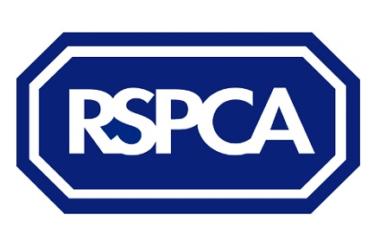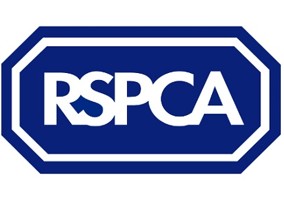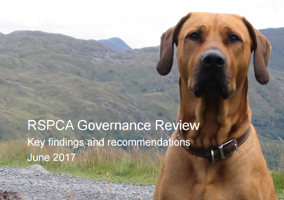This weekend the RSPCA’s members voted in favour of recommendations made by a governance review, Kirsty Weakley looks at the challenges facing the charity as it works to improve its governance.
The RSPCA has been faced with a relentless stream of attacks from certain corners of the media for the last few years, while its cumbersome governance structure hasn’t helped allay concerns.
Some of the criticism that has been levelled at the charity has been unfair and politically motivated, but other parts have been spot on. Unfortunately the public is unlikely to differentiate between the two, weakening the charity’s ability to defend itself when it is faced with unfair criticism.
The charity has struggled with issues on almost all fronts. It has faced questions about how it fundraises, what it does, and who’s in charge.
The Charity Commission is concerned about the potential damage to public trust and confidence. Last March the Commission urged the chairty to carry out a review of its governance - the findings of which have only just been published. Now it has urged the RSPCA to hurry up and implement reform, warning that if it doesn’t, the regulator could take further action.
Latest crisis
The latest crisis stems from the sudden departure of its chief executive, Jeremy Cooper, who had only been in post for 14 months, shortly before a potential changes outlined in a governance review were to be put to members.
He was just the latest in a series of high-profile departures, both in the executive and non-executive team, amid concerns about how the charity was being run.
Before appointing Cooper the charity had been without a chief executive for almost two years. Its previous chief executive, Gavin Grant, left after just two years in charge and was swiftly followed out the door by his deputy.
Trustees have also resigned in protest, with documents and information about internal disputes being leaked to a number of media outlets, including Civil Society News.
This all gives gives the impression of instability and confusion and leading to speculation that the charity is in the middle of an internal argument about its future direction.
Unrelenting media attacks
It’s easy to see why RSPCA’s default position was to take a defensive line - it has not been far from the glare of the media spotlight. It has been criticised for its pursuit of fox hunters, its chief executive’s salary, a court dispute over a legacy and its part in unethical fundraising practices.
Criticism of the charity’s campaigning activity is clearly rooted in some publications’ viewpoint, but reporting of its internal disputes, which might sometimes be done with a note of glee, are often hard to argue with.
Pressure from the right-wing press and Conservative MPs over a number of years ultimately led to a debate in Parliament, a review of its prosecution activity, and a commitment from the charity that it would pass information to police first.
The charity was also fined by the Information Commissioner's Office for breaching the Data Protection Act. It received the largest fine of any charity.
It’s worth noting that a cursory glance through local news about the RSPCA offers a different picture. These stories usually focus on the work of local branches to rescue stranded animals, and are chiefly positive.
Slow to react and out of touch
In this age of instant news and social media the charity has appeared to act slowly.
It took over two years to find a replacement for Grant, with the charity appearing confused about who was running the organisation a number of times when Civil Society News asked for an update.
It has also appeared out of step with the public mood at times during the 2015 fundraising crisis and initially defended its activity rather than immediately issuing an apology and distancing itself from the agencies involved, as other charities were doing, though it has now committed to reviewing all its activity and addressing concerns.
This is partly down to its governance structure. The charity has provision for a 25-strong board, all of whom were drawn from its membership and elected.
The governance review noted this can make it difficult to ensure the right balance of skills on the board and the charity has taken action to address the by voting to enable three co-opted trustees. Of course, whether it makes use of this or not remains to be seen.
Unlike most charities RSPCA is constituted under four acts of Parliament, which affects the extent to which it can make changes to its rules.
Branches are also all registered as separate charities (there are nearly 200 results when you search for RSPCA on the Charity Commission’s register) with their own trustees, which adds another layer of complexity.
Financial issues addressed
While there has been trouble on many fronts, the charity has been successful in addressing its finances.
In 2013 a leaked document revealed that in a worst case scenario the charity could be gone in ten years if it did not strike the right balance between speaking out on issues like fox hunting and the need to raise money.
For the financial year ending December 2016 the charity’s income was £144m, up from £116m in 2011, and it now considers itself to be financially stable.
This should give it a good base on which on which to carry out other reforms.
Where does it go from here?
At the moment the charity stands at a crossroads, and has to address the issues firmly, decisively and openly.
It is a positive sign that the charity has agreed to the rule changes, and its chair, Daphne Harris has committed to reform.
However it is not just about changing a couple of faces on the trustee board. There needs to be a culture change across the charity to create a flexible and supportive environment for those involved. Crucially, the board must agree on the charity's direction.
It must also behave in a more open and honest way to publicly demonstrate improvements. A good start would involve appointing a new chief executive, from outside the charity, to visibly drive through some of these changes.
The RSPCA always has been and should continue to be a strong campaigning voice for animal rights, which will often bring it into conflict with sections of the media and some politicians, but if it is not seen to address the governance problems then its credibility to lobby on the issues that matter to its members will be damaged.
|
Related articles












